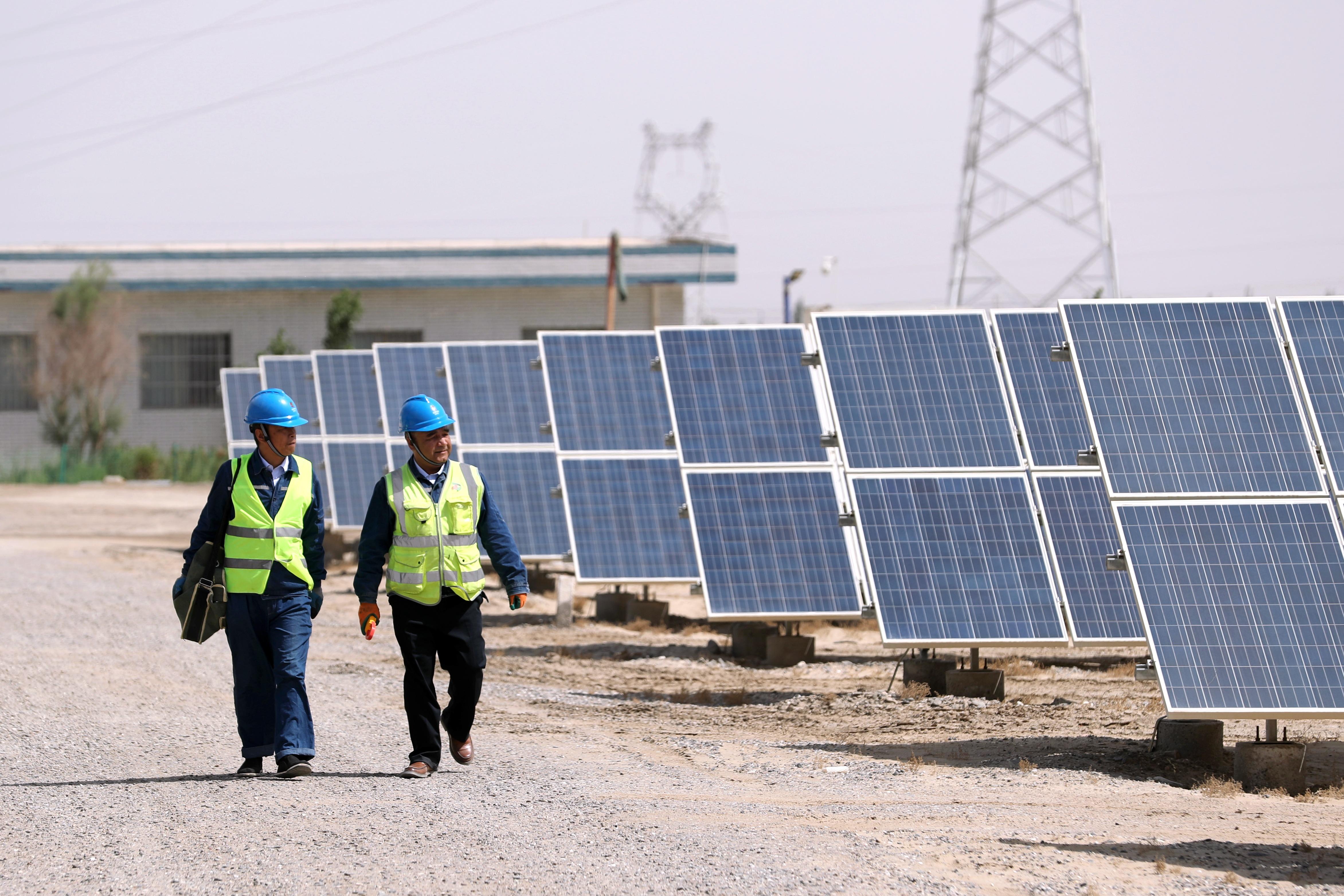 Engineers patrol the photovoltaic power plant in Hotan, Xinjiang Uygur autonomous region, on May 17. (WANG ZHUANGFEI / CHINA DAILY)
Engineers patrol the photovoltaic power plant in Hotan, Xinjiang Uygur autonomous region, on May 17. (WANG ZHUANGFEI / CHINA DAILY)
China is capable of achieving net-zero greenhouse gas emissions ahead of schedule while further accelerating the global transition to a low-carbon energy structure, as the country's nonfossil fuel energy sources have exceeded 50 percent of its total installed electricity generation capacity, industry experts said.
Nonfossil fuel sources, including wind energy, nuclear energy, solar power and hydropower, account for 50.9 percent of China's total installed electricity generation capacity, exceeding the same from fossil fuel sources for the first time, said Yang Yinkai, deputy head of the National Development and Reform Commission.
Speaking during the Shanghai International Carbon Neutrality Expo in Technologies, Products and Achievements, which started on Sunday, Yang said that China has come up with various supporting policies in recent years to ensure the achievement of carbon peak and carbon neutrality, which has led to the vibrant development of low-carbon industries in the country.
The commission will continue to promote carbon reduction and pollution reduction while accelerating green transition, Yang added.
An analyst said that both the installed capacity of and power generation from nonfossil fuel sources in China have been developing at a rapid pace in recent years, as the country is scaling up investment in the energy sector and low-carbon technologies.
There is no doubt that China can achieve carbon peak before 2030 and carbon neutrality before 2060, as the country has been leading in the production and deployment of renewables, said Lin Boqiang, head of Xiamen University's China Institute for Studies in Energy Policy.
China has devoted a significant amount of resources to build its renewable energy capacity in recent years, constructing large wind, solar and hydropower plants in the west of the country, as it seeks to meet its carbon peak target before 2030, Lin said.
The country has been building massive wind and solar power facilities in its desert regions. Most of the projects are located in the northwestern parts of the country that have vast renewable energy sources.
China is capable of accomplishing a faster than expected clean energy transition, according to Kou Nannan, head of China Research at BloombergNEF.
"Increasing installed power generation capacity using nonfossil fuel sources in the country shows how fast China's power system can decarbonize," he said.
Renewable power and other zero-emission technologies will play key roles in meeting China's rising power demand, and the country needs to accelerate building more wind and solar plants, which have proven to be the cheapest means to reduce its emissions, he added.
According to the National Energy Administration, China's electricity generation from renewable sources reached 594.7 billion kilowatt-hours in the first quarter, an increase of 11.4 percent year-on-year. The total figure includes 342.2 billion kWh power generated by wind and solar facilities, up 27.8 percent year-on-year, administration data showed.


